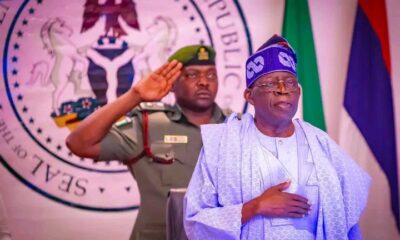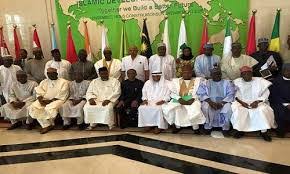Business
Global Energy Advisory …Bulls Run Rampant In The Oil Market
In this edition, Martin Tillier highlights what he believes to be the most important theme in energy markets in 2018. He argues that this theme should be a central part of your trading strategy this year, and picks a stock that he believes is set to boom.
We’ve been nearly alone in taking in some stellar gains in oil stocks since late October, benefiting from an oil rally that few analysts (besides myself) saw coming and positioned themselves for. And the watchword for today is: Let it ride.
You know that I am a long-term bull on oil prices and oil stocks, and even the impressive extension of WTI prices near to $65 a barrel this week throws only a little cold water on my expectations. We’re in the driver’s seat now. You can take some money off the table, sure – but for the most part, let everyone else chase and play catch-up with our stocks.
I was on Bloomberg TV on Wednesday to engage in a bull/bear debate on oil – as if this rally from the mid-forties only began yesterday. A clip from Jeff Currie of Goldman Sachs was played to start the debate, where he noted the robust oil demand expectations for 2018, but was pessimistic about sustaining $60 oil based upon the deep backwardation of the futures markets.
In person, I debated Michael Cohen of Barclays, whose main pessimism was based upon the 1.5m barrels a day of US production he expects to see added in 2018 – a projection that far exceeds even the very unlikely (according to me) 1m barrels a day from the EIA. But Cohen’s 2018 target for WTI – $52 – is already twelve dollars in the rear-view mirror. Um, that’s not so comforting a forecast – considering its still only the 12th of January.
But, instead of engaging (again) in assessing just how much new U.S. shale oil is to come in 2018, let’s look (and debunk?) the interesting argument about the crude curve from Goldman Sachs’ Jeff Currie:
The crude curve is a difficult, but worthwhile mechanism to try and understand, particularly for a 30-year futures trading veteran like me. One of the few generalisations I can make after those 30 years, is that the shape of the futures curve is rarely predictive of prices, unless very wide extremes are being seen.
Let’s take the case of Contango to start examining this, where prices for crude delivery in the future are more expensive than those in the present. In such a case, we are staring at a type of ‘carry trade’ opportunity, where commercial traders can sell far back month futures, buy front (or cash) crude contracts and physically (or virtually) ‘store’ the barrels – pocketing the difference of the Contango, minus the carry (storage) costs. In very extreme cases, such a Contango can signal a coming turnaround to the upside in oil prices – as the $15 12-month Contango did in 2009 and the $8 Contango did just two years ago.
Currie makes the opposite case today, now that the crude curve has gone (recently) into backwardation, where the prices at the front of the curve are more expensive than in the back months. The thesis for an extreme backwardation signalling a coming drop in prices is the exact opposite to the one for Contango: Commercials acquire everything that’s left in storage and flood the market, while buying replacement supplies in back contracts to replace what they’ve sold.
The thing is – The actual physical case for backwardation selling is not nearly as compelling (or as profitable) for commercials as it is for carry trade buying. Historically, all the really big oil bull markets took place despite carrying a deep backwardation as a condition of the crude curve. Most of the bull market from 2003-2007, for example, which took crude to $140 a barrel, happened while the spreads were in fairly deep backwardation.
And even now, it’s not as if backwardation is all that extreme anyway:
This is the current 12-month Feb18-Feb19 spread. Yes, this spread went from Contango to backwardation in September of last year, moving to nearly $5. But that is hardly enough to entice the prompt selling of cargoes today to include the 12-month carry costs. What is more likely happening is a surplus of commercial back month sellers, all hoping to lock in $65 hedges for next year and beyond, and simply not finding the speculative buying to offset it – that’s what I believe has been moving the spread so much higher so quickly in the last several weeks of the New Year.
I know this has been a bit of a wonky column, but I hope you’ll find some value in understanding a little about the crude curve; when it provides a predictive edge – and when it doesn’t.
Martin Tillier
Business
MWUN Backs Nigeria’s Bid For IMO’s Category C Seat
Business
Food Security: FG To Review Nigerian Agric laws
Business
Okpebholo Charges Committee To End Herders, Farmers Clash In Edo … Inaugurates Boundary Committee
-
News3 days ago
I Have No Regrets Over My Life Paths, CharlyBoy Says At 75
-

 News3 days ago
News3 days agoFG’ll Unlock Potential Of All States, Says Tinubu
-
Sports3 days ago
Shaibu Set To Overhaul NIS
-
Business3 days ago
PINL Awards Scholarships To 645 Persons … Presents Empowerment Packages For Host Communities.
-
Opinion3 days ago
L’Ouverture:Africa and Echoes of Toussaint
-

 News3 days ago
News3 days agoNEF Decries Benue Killings As Genocide, Calls For Probe
-
News3 days ago
FCCPC Seals France, Belgium, Italy Visa Centre Over Investigation Obstruction, Suspected Unfair Practices
-

 Rivers3 days ago
Rivers3 days agoRivers High Court Judges Begins 2025 Vacation July 21

